Introduction
Have you ever heard about different thermal management systems? If yes, then you must have heard about heat pipe heat sinks. It is one of the most effective heat dissipation systems to help your device function effectively. In simple words, you can say that it makes use of phase transition to dissipate heat.
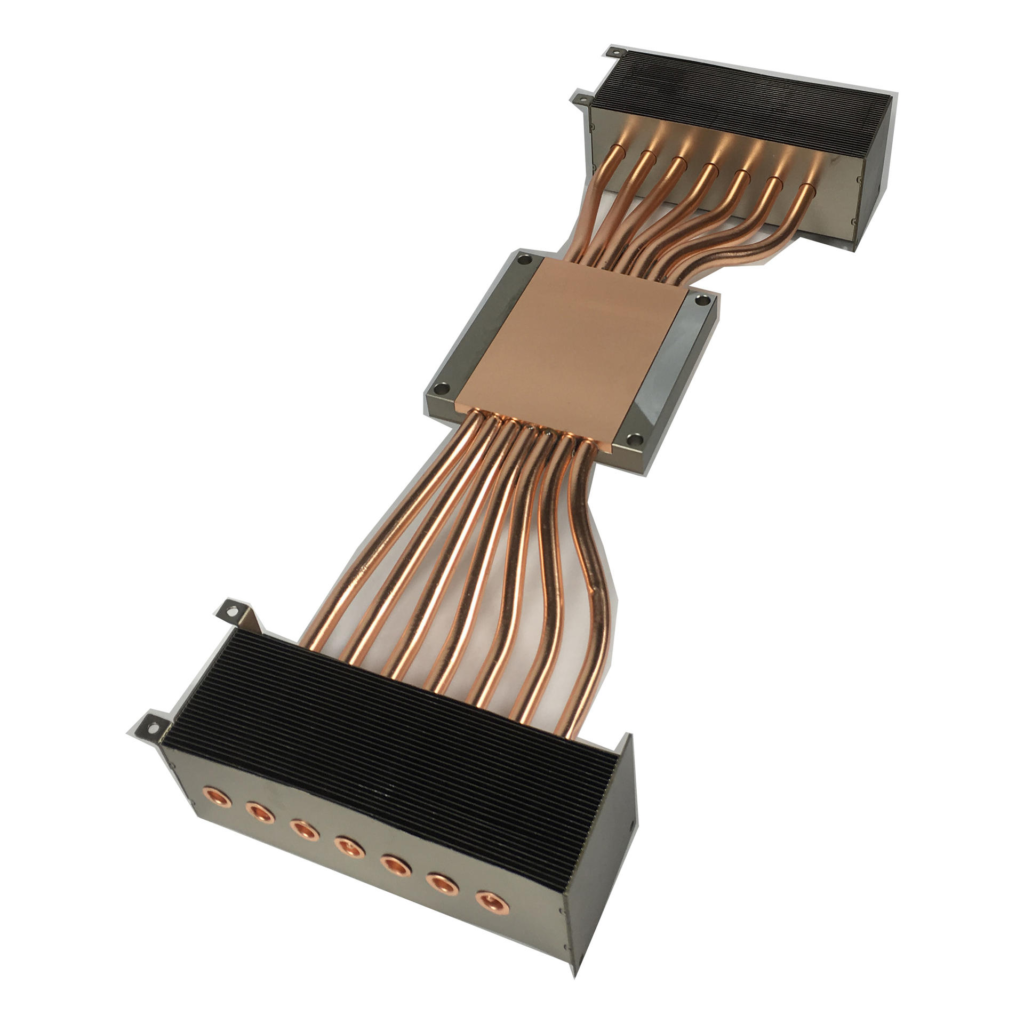
Before buying a heat pipe heat sink for your devices, it is always important to know some basics. Don’t worry if you don’t know anything about the basics of heat pipe heat sink. This blog has everything that you need to know about heat sinks. Continue reading for further information.
FAQs
What Is A Heat Pipe Heat Sink?
A heat pipe heat sink helps your device to dissipate heat due to its extremely large thermal conductivity. In other words, heat pipe heat sinks are referred to as evacuated vessels. These evacuated vessels are circular in cross-section. Moreover, you will see a liquid that is back filled in those evacuated vessels of heat pipe heat sinks.
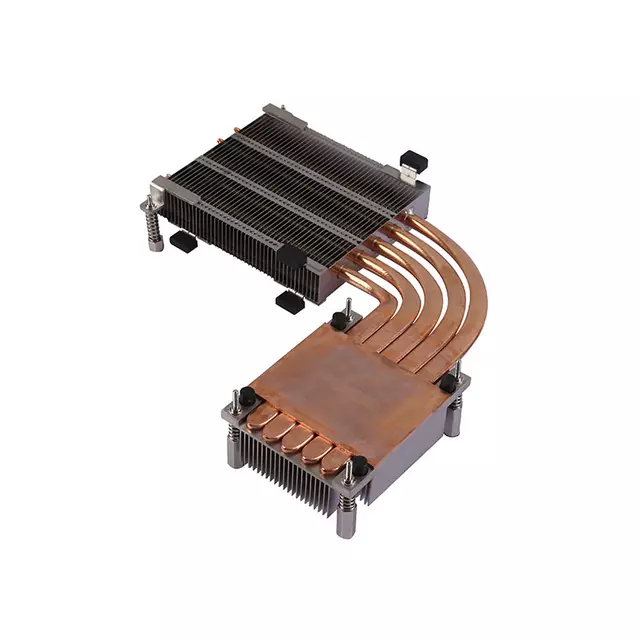
The important point to note is that heat pipe heat sinks are composed of a totally passive system. There doesn’t exist any moving part in this system. This is how it can transfer or dissipate heat with a minimum temperature gradient. Note that the fluid used in heat pipe heat sinks is of different types. Sometimes it is water or sometimes any other material.
What Are Applications Of Heat Pipe Heat Sink?
An interesting thing to note about heat pipe heat sinks is that they were first developed for space applications. It was a step taken by NASA during the 60s. It is because heat transfer was the main problem in space applications. Hence, heat pipe heat sinks were developed as a fast and efficient method to dissipate heat in space.
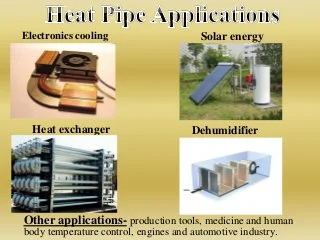
Nowadays, heat pipe heat sinks are used especially in those applications where you have only limited space. Of course, it is still utilized in space systems. But it is also used in different electrical devices on earth. Some applications of heat pipe heat sinks are listed but not limited below:
✔Solar thermal systems
✔Computer systems
✔Power electronics
✔Spacecrafts
✔Aircraft
✔Cooking
✔Medical device
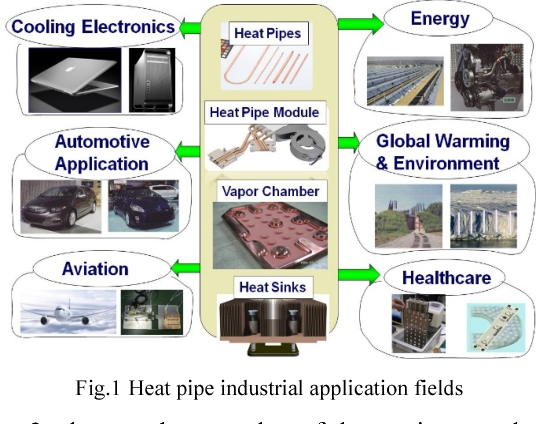
What Are the Limitations Of Heat Pipe Heat Sinks?
Just like any other technology nowadays, heat pipe heat sinks also possess some disadvantages. For example, heat pipe heat sinks have to be tuned at some specific cooling conditions. Moreover, it is necessary to use heat pipe heat sinks within their design range otherwise it will result in efficiency reduction.
There also exist material limitations to building heat pipe heat sinks. There are some heat transport limitations of heat pipe heat sinks that are listed below:
- Capillary limit
- Boiling limit
- Entrainment limit
- Sonic limit
All the above-mentioned limits are four basic heat pipe heat sink limits.
What Are Some Common Types Of Heat Pipe Heat Sinks?
Heat pipe heat sinks have a number of types that can be chosen according to your requirements. As a matter of fact, the standard type of heat pipe heat sinks is referred to as constant conductance heat pipes. Some other types of heat pipe heat sinks are below:
- Vapor chambers
- Variable Conductance Heat Pipe Heat Sinks
- Rotating Heat Pipe Heat Sinks
- Diode Heat Pipe Heat Sinks
- Thermosyphons
- Pressure Controlled Heat Pipe Heat Sinks.
Note that Vapor chamber heat sinks are also known as Planar heat pipe heat sinks. Each of these types has its own specifications. Just make sure they fulfil the heat transfer need of your device before you choose them.
What Is The Thermal Conductivity Of A Typical Heat Pipe Heat Sink?
Thermal conductivity is an important aspect of heat pipe heat sinks since they are known for the most efficient thermal conductivity. However, it is also a fact that there is no specific Thermal Conductivity for heat pipe heat sinks just like solids. It is due to the fact that they have a two-phase heat transfer.
An interesting part to know is that the thermal conductivity of heat pipe heat sinks increases with their Length. For example, if there are two heat pipe heat sinks, 12-inch and 4-inch. Both of these lengths might have the same thermal gradient, but 12-inch heat sinks possess higher thermal conductivity.
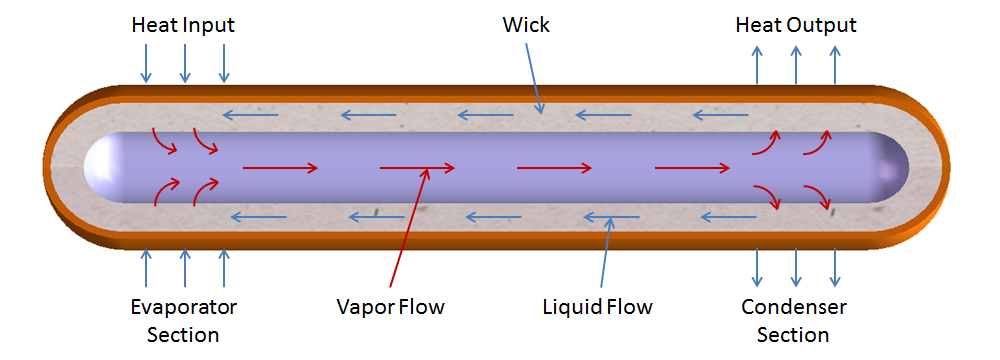
The thermal conductivity of heat pipe heat sinks also changes with the amount of power that it transfers. It also increases with condenser and evaporator sizes.
Note that the effective thermal conductivity lies in a range of 10 to 10,000 times the thermal conductivity of copper. It all depends on the length of the heat pipe heat sinks.
What Materials Can Be Used To Construct A Heat Pipe Heat Sink?
As mentioned earlier, selecting the right material for your heat pipe heat sinks can also be challenging. Due to the unavailability of the right material, most manufacturers cannot guarantee a high-quality heat pipe heat sink. However, if you think that you can get the right material to construct a heat pipe heat sink, then don’t forget to consider a few factors.
You have to note that the material of the wall of heat pipe is selected on the basis of compatibility with the working fluid. On the other hand, the working fluid of heat pipe heat sinks is chosen based on temperature ranges.
Once you select the working fluid of heat pipe heat sinks, you have to choose the material that matches its chemical compatibility. It is to make sure that no chemical reaction takes place between the working fluid and the heat pipe wall material. Moreover, it also prevents corrosion.
If there occurs a chemical reaction between the working fluid and heat pipe wall material, there will be produced a non-condensable gas. As a result, it will cause an operational failure.
Why You Should Prefer Heat Pipe Heat Sink Over Other Heat-Dissipation Mechanisms?
There are several heat dissipation methods available in the market. However, people mostly try to prefer heat pipe heat sinks over the other heat dissipation methods. It is due to the higher heat transfer efficiency of heat pipe heat sinks. A two feet long pipe with a one-inch diameter is capable of transferring 3.7kW at 1800⁰F.
An amazing thing to note is that some heat pipe heat sinks are known for demonstrating heat flux four times higher than the surface of the sun.
How Is The Material and Working Fluid Of the Heat Pipe Heat Sink Chosen?
Heat pipe heat sinks consist of a working fluid, a wick, and an envelope. These heat dissipation devices are manufactured for long-term uses without any kind of maintenance. This is why the working fluid must be compatible with the heat pipe heat sink’s wick and wall. There are some pairs of working fluids and walls that might seem compatible but they aren’t.
For example, if you choose an aluminum envelope and water as a working fluid. It will result in the production of non-condensable gas that will prevent the normal functioning of heat pipe heat sinks. Therefore, make sure that the material and working fluid you are choosing, are compatible with each other.
How Well Do Heat Pipe Heat Sinks Work?
First of all, it is important to understand the working of your heat pipe heat sinks. A volatile liquid is utilized with a thermally conductive solid surface of your heat pipe heat sinks. The volatile liquid travels to the cold section of heat pipe heat sinks where condensation takes place. At this point, the liquid returns to the hot section through gravity, centrifugal force, or capillary action.
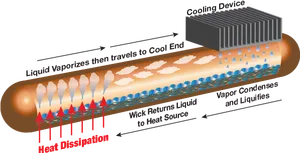
Since there are higher heat transfer coefficients for condensation and boiling, heat pipe heat sinks are known to be effective thermal conductors. This thermal conductivity varies with the length of your heat pipe heat sinks. This is how well a heat pipe heat sink can work.
How Long Do Heat Pipe Heat Sinks Last?
The service life is something that most users want to know before making a decision about purchasing something. In the case of heat pipe heat sinks, it is also important to know the service life.
In some cases, heat pipe heat sinks are found to be operating normally for more than 20 years. In other words, it is said that once it is operated for a few hours normally, it can operate for tens of thousands of years normally.
Are Heat Pipe Heat Sinks Expensive?
When you compare the heat pipe heat sinks to some other heat transfer methods, You will find that it has a higher initial cost. Therefore, most manufacturers don’t recommend heat pipe heat sinks in Applications where you can achieve cooling through other methods. On the other hand, heat pipe heat sinks actually have a competitive cost.
When you buy heat pipe heat sinks in larger quantities, there are more chances of reducing the cost.
Are Heat Pipe Heat Sinks Reliable?
Yes. Heat pipe heat sinks are known to be the most reliable. It is due to the absence of moving parts in them. Heat pipe heat sinks are ideal for space applications where you can’t Maintain the system. The main factor behind their failure is the generation of gas that can be completely avoided through proper assembly and cleaning.
Can Heat Pipe Heat Sinks Work Against Gravity?
Yes. Heat pipe heat sinks can work against gravity when the evaporator is placed above the condenser. At this point, you need to pump the working fluid against gravity so that it can reach the evaporator. This is possible only through the structure of the wick. It pumps the working fluid with the help of capillary pressure that is developed in the porous wick.
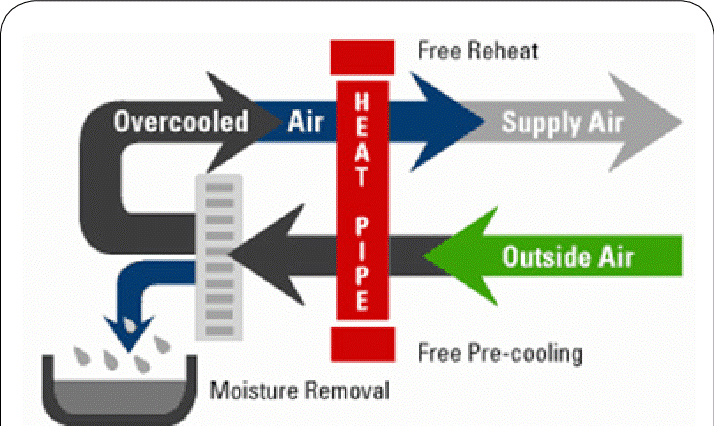
Note that the wick structure having a finer pore Radius corresponds to the higher operation against gravity.
How Does A Water Heat Pipe Heat Sink Work Below 100° C?
As a matter of fact, water actually boils at temperatures less than 100⁰ at atmospheric pressure. However, you cannot have an atmospheric pressure inside the heat pipe heat sinks. Basically, it is the saturation pressure of the fluid of the heat pipe heat sink that is its internal pressure.
In other words, the fluid inside a heat pipe heat sink can boil easily at any temperature above the freezing point. Therefore, the water inside a heat pipe heat sink can boil at 20⁰C.
Can Heat Pipes Freeze?
Yes. Heat pipe heat sinks can also freeze under some particular conditions. As a matter of fact, the heat pipe heat sinks fluids try to maintain their freezing point. Note that heat pipe heat Sinks don’t operate until the temperature exceeds the liquid’s freezing temperature. However, if your heat pipe heat sink is designed properly, it will not be damaged through the freezing of fluid.
Make sure that you purchase a heat pipe heat sink that is designed properly.
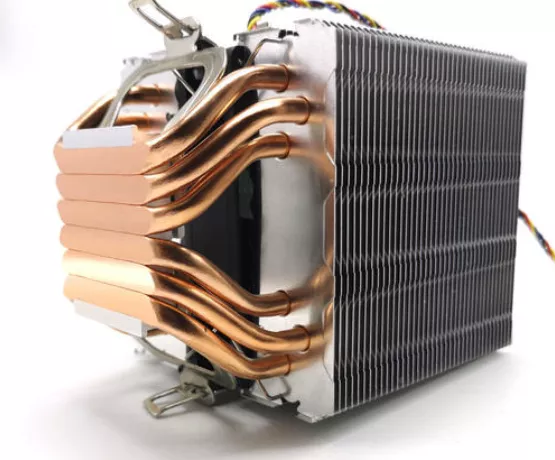
Conclusion
Heat pipe heat sinks are known to be a perfect source of transferring heat out of your device. However, choosing the right manufacturer always matters the most. If you are in search of a reliable manufacturer for your heat pipe heat sinks, don’t worry. We are experienced manufacturers of heat pipe heat sinks. Contact Us now to get your quote.
